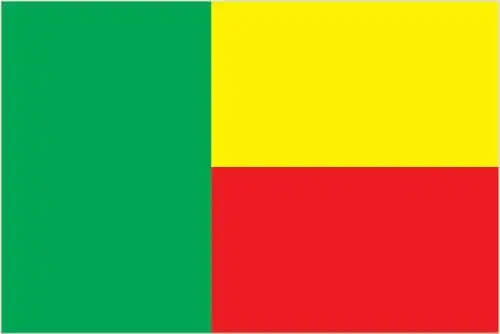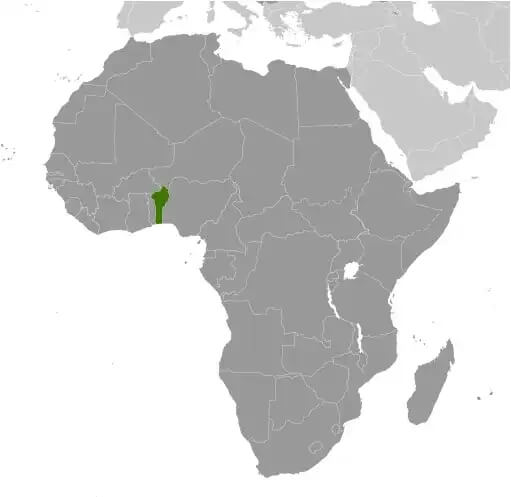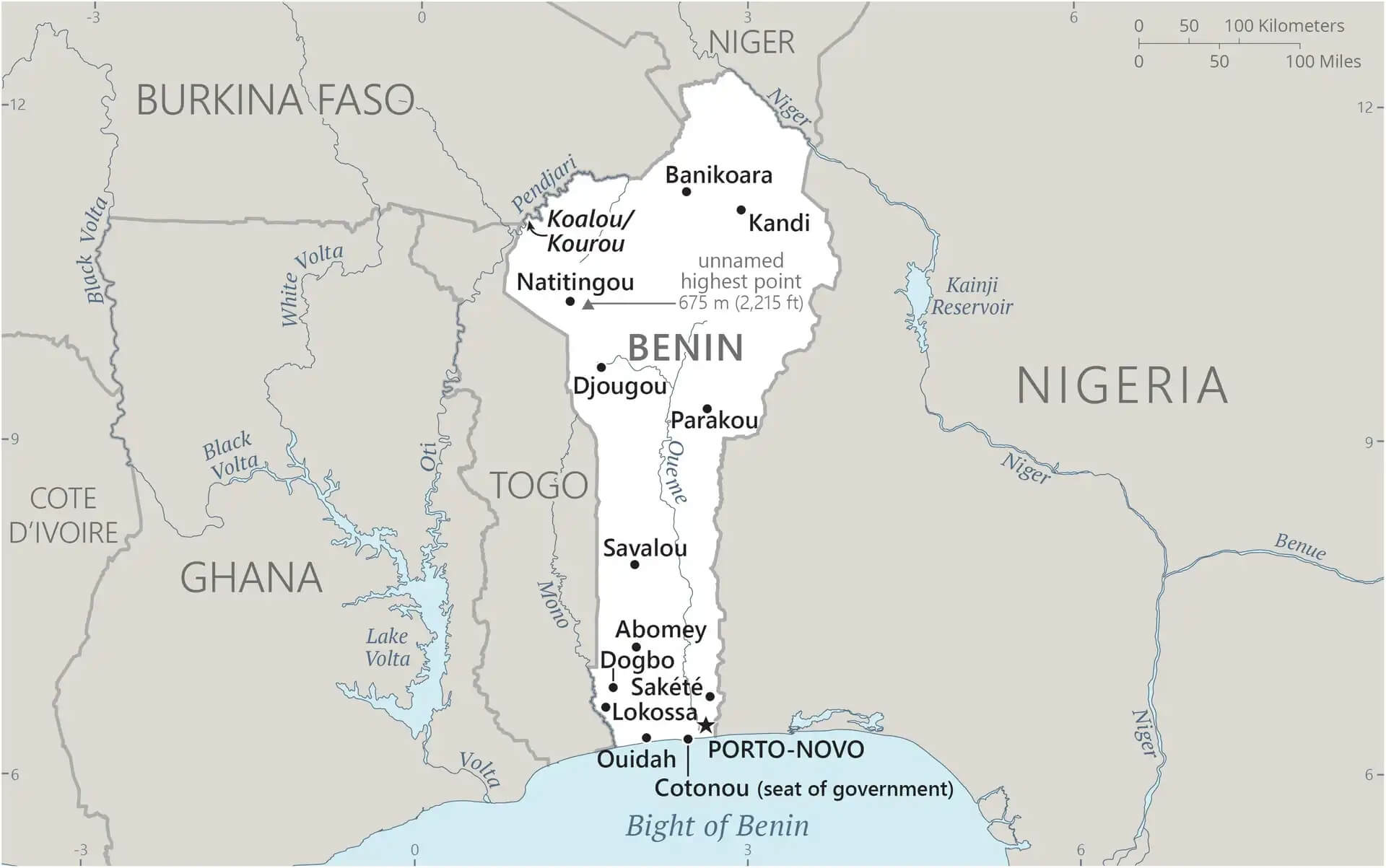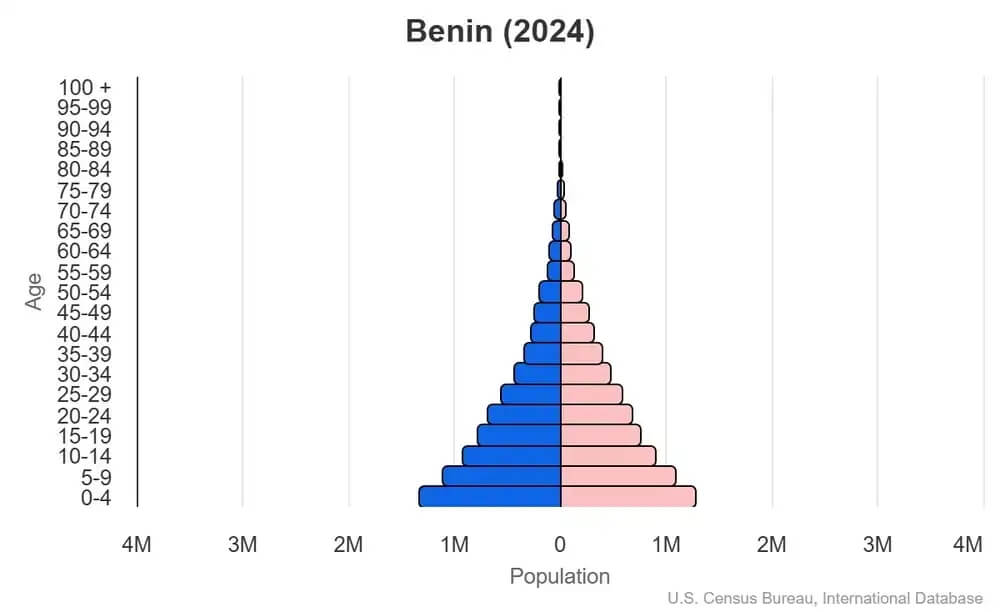World Book
Benin
World Book Index
47


With a score of 47, the country is ranked 137th out of 158 countries in the World Book ranking. (more information)
Introduction
Present-day Benin was the site of Dahomey, a West African kingdom that was a regional power from around 1600 through the mid-19th century. By 1894, France had taken control of the area. French Dahomey achieved independence in 1960 and changed its name to the Republic of Benin in 1975.
Neighboring countries
Burkina Faso - Niger - Nigeria - Togo
Geography
Area
total: 112,622 sq km
land: 110,622 sq km
water: 2,000 sq km
Climate
tropical; hot, humid in south; semiarid in north
Natural resources
small offshore oil deposits, limestone, marble, timber
People and Society
Population
total: 14,697,052 (2024 est.)
Ethnic groups
Fon and related 38.4%, Adja and related 15.1%, Yoruba and related 12%, Bariba and related 9.6%, Fulani and related 8.6%, Ottamari and related 6.1%, Yoa-Lokpa and related 4.3%, Dendi and related 2.9%, other 0.9%, foreigner 1.9% (2013 est.)
Languages
55 languages; French (official); Fon (a Gbe language), Yom (a Gur language) and Yoruba are the most important indigenous languages in the south; half a dozen regionally important languages in the north, including Bariba and Fulfulde
Religions
Muslim 27.7%, Roman Catholic 25.5%, Protestant 13.5% (Celestial 6.7%, Methodist 3.4%, other Protestant 3.4%), Vodoun 11.6%, other Christian 9.5%, other traditional religions 2.6%, other 2.6%, none 5.8% (2013 est.)
Population growth rate
3.29% (2024 est.)
Government
Government type
presidential republic
Capital
name: Porto-Novo (constitutional capital); Cotonou (seat of government)
Executive branch
chief of state: President Patrice TALON (since 6 April 2016)
head of government: President Patrice TALON (since 6 April 2016)
Diplomatic representation in the US
chief of mission: Ambassador Agniola AHOUANMENOU (since 24 July 2025)
Diplomatic representation from the US
chief of mission: Ambassador Brian SHUKAN (since 5 May 2022)
Economy
Economic overview
robust economic growth; slightly declining but still widespread poverty; strong trade relations with Nigeria; cotton exporter; COVID-19 has led to capital outflows and border closures; WAEMU member with currency pegged to the euro; recent fiscal deficit and debt reductions
Real GDP (purchasing power parity)
$56.424 billion (2024 est.)
$52.51 billion (2023 est.)
$49.374 billion (2022 est.)
Real GDP per capita
$3,900 (2024 est.)
$3,700 (2023 est.)
$3,600 (2022 est.)
Exports
$4.511 billion (2023 est.)
$4.271 billion (2022 est.)
$4.154 billion (2021 est.)
Exports - partners
UAE 42%, Bangladesh 20%, India 11%, China 5%, Togo 3% (2023)
Exports - commodities
gold, cotton, coconuts/brazil nuts/cashews, soybeans, wood (2023)
Imports
$6.189 billion (2023 est.)
$5.296 billion (2022 est.)
$4.925 billion (2021 est.)
Imports - partners
China 21%, India 15%, USA 6%, France 6%, Nigeria 4% (2023)
Imports - commodities
rice, refined petroleum, palm oil, poultry, cars (2023)
Human Development Index
The country's Human Development Index (HDI) is 0.515, ranking it 173rd out of 193 countries tested. (more information)
World Happiness Report
The World Happiness Report ranked the country 123rd out of 158 countries tested with a score of 4.372. (more information)



